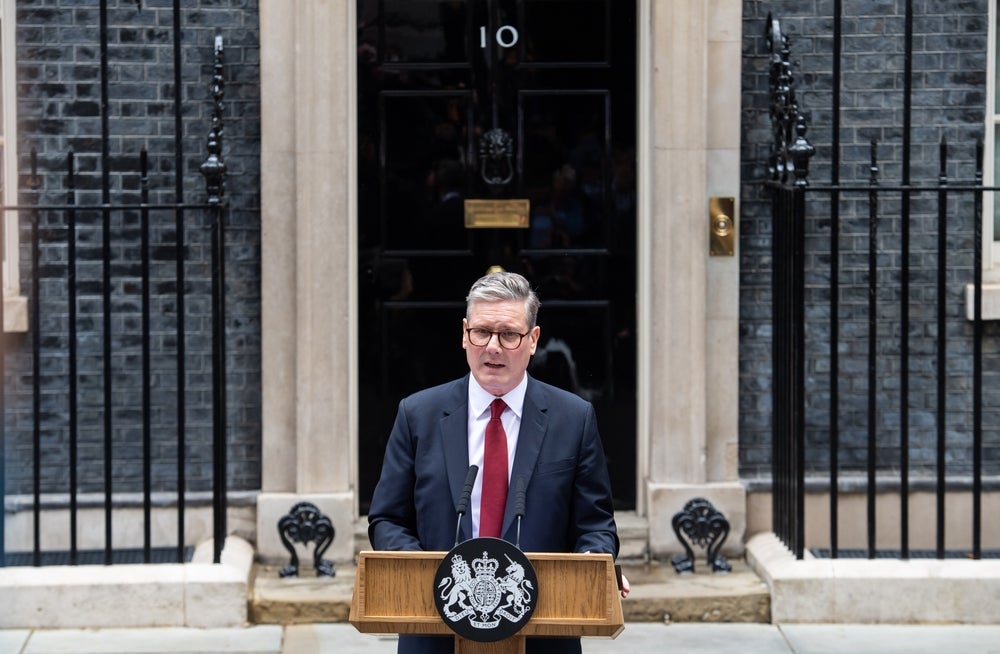Attention from around the world has focused on
fair value and mark-to-market accounting this month. The
Accountant discovers that while some banks are claiming the
measurement has exacerbated the global financial turmoil, most
stakeholders say that without it the credit crisis would have hit
later, but harder.
When US Congress passed the Emergency Economic Stabilization Act
of 2008 (EESA) on 3 October, with it came the authority for the US
Securities and Exchange Commission (SEC) to suspend the application
of FASB Statement Number 157 – Fair Value Measurement. The Act also
directed the SEC to conduct a study on mark-to-market accounting,
which is due to be completed in January.
Fair value accounting measures the value of an asset to its
current market price rather than measuring it to the historical
price paid for it. Banks claim the practice has resulted in massive
write-downs of assets in situations where no market exists.
However, the accounting profession and several other stakeholder
groups have thrown their support behind fair value measurement, in
some cases claiming that it was responsible for identifying the
credit crisis as early as it was.
Speaking at an Institute of Chartered Accountants in England and
Wales event this month, René Ricol, the past president of the
International Federation of Accountants and author of a report
advising French and EU President Nicolas Sarkozy on the credit
crisis, said bankers’ blame of fair value is unfair.
How well do you really know your competitors?
Access the most comprehensive Company Profiles on the market, powered by GlobalData. Save hours of research. Gain competitive edge.

Thank you!
Your download email will arrive shortly
Not ready to buy yet? Download a free sample
We are confident about the unique quality of our Company Profiles. However, we want you to make the most beneficial decision for your business, so we offer a free sample that you can download by submitting the below form
By GlobalData“I think it was because of fair value that the crisis was
identified earlier,” he said. “If not for fair value we would still
not know about the crisis now and we would have ended up with ten
times the crisis we have today.”
UK-based Chartered Institute of Management Accountants chief
executive Charles Tilly tells The Accountant fair value is
the best form of accounting available.
Referencing Winston Churchill’s famous quote regarding
democracy, Tilly says: “One can very easily say that fair value
accounting is the worst form of accounting until you look at the
alternatives.”
Tilly suggests some of the banks’ issues could have arisen from
the misconception that distressed market value is the same as fair
value. He says this is not the case.
“I think potentially where organisations have been slaves to
mark-to-market, there have been situations where there is a
distressed market,” he says.
“If everybody has to mark their holdings down to the distressed
market value, that clearly doesn’t actually reflect reality for
individual organisations. If one organisation has to sell its
holding or it has a very small holding so it is quite happy to
dispose of it at a very low price, that is not a fair market value.
That relates to a specific set of circumstances.”
A recent International Accounting Standards Board (IASB) paper
updating the board’s work on the application of fair value
accounting when markets become inactive supports Tilly’s
claims.
In May 2008, at the request of the Financial Stability Forum,
the IASB established an expert advisory panel to consider the
application of fair value in an inactive market. The panel has
agreed to emphasise that the objective of a fair value measurement
is the price at which an orderly transaction would take place
between market participants on the measurement date, not the price
that would be achieved in a forced liquidation or distressed
sale.
Tilly argues against alternatives to fair value, saying that
changing everything to cost, for instance, if it is not fair market
value, “is just deluding everybody”.
He also suggests an aspect of the problem has been a shortage of
narrative reporting and argues that a company’s whole situation
must be well explained in the annual report.
German Accounting Standards Board president Liesel Knorr is also
concerned about the prospect of suspending mark-to-market
accounting. She says she firmly believes that suspending the rules
doesn’t help.
“We all have still yet to learn how to live with the transparent
information and not panic at it,” she says.
Awaiting the study
New American Institute of Chartered Accountants chair Ernest
Almonte is looking forward to seeing what the SEC study on
mark-to-market accounting shows.
As part of the study the commission is hosting two round-tables
involving investors, accountants, standard-setters, regulators,
business leaders and other interested parties.
“I think that accounting standards should be set by following
the process that has been set in the past – having due diligence,
having a proposal come out and having comments made by the public
and from people in the industry – that’s the way standards should
be set, not a knee-jerk reaction to a problem,” Almonte says.
BDO International chief executive Jeremy Newman also warns
against a “knee-jerk reaction”.
“Fair value accounting is not the cause; it may have drawn the
problem into sharper focus but arguably that is a good thing.
Shooting the messenger because you do not like the message is not a
sensible approach to take,” he says. ]
“If you suspend rules and say it is open season to do what you
like then comparability becomes almost impossible and you can’t
then make proper judgements.”
The US Financial Accounting Foundation has called repeatedly for
the SEC to not supersede accounting standards. A group of US
stakeholders also voiced their concern about suspension of FASB 157
after the EESA was passed by the US Senate, but before it was
enacted by Congress.
The joint letter from groups including the Center for Audit
Quality, CFA Institute, Consumer Federation of America and Council
of Institutional Investors urged the SEC not to take this path.
“A move by the SEC to suspend fair value accounting would be a
disservice to the capital markets, would be inconsistent with the
views of investors and would harm the credibility and independence
of the standards setting process,” the letter said.
“Fair value accounting with robust disclosures provides more
accurate, timely and comparable information to investors than
amounts that would be reported under other alternative accounting
approaches.”
Support from the UK
UK stakeholders have also expressed support. These include
insurers, firms and UK Financial Reporting Council chief executive
Paul Boyle, who said accounting did not cause the current financial
crisis and changing accounting rules would not fix it.
Investment analysts too are opposed to the suspension of
mark-to-market accounting rules. Head of accounting and valuation
research at JPMorgan, Cazenove Peter Elwin, says mark-to-market
accounting rules are not the cause of current credit problems and
suspending them will only increase investor uncertainty.
“Whatever the criticisms of fair value accounting, the genie is
out of the bottle and can’t be put back. You are not going to
restore confidence by arbitrarily suspending it now. You don’t
restore trust by making the numbers clearly less trustworthy,” he
says.
Elwin said it is disappointing the US seems to be contemplating
suspending it.
“You do risk breaking the system that is ultimately, however
flawed, the greater good for the greater number,” he says.
IASB chairman David Tweedie is hopeful the SEC will not suspend
mark-to-market measurements.
“I was in the US last week and I got the feeling that, apart
from obviously some vested interest, that wasn’t really what was
being asked for,” he says.
“Certainly I was with the financial executives institute, I was
with some analysts, and none of them were arguing for it.”
STANDARDS
Japan denies claims
The Accounting Standards Board of Japan (ASBJ) has refuted
claims made by an international newswire that the Japanese
government has accepted a recommendation from the ASBJ to ease
mark-to-market accounting rules and allow companies to calculate
asset values themselves.
The ASBJ told The Accountant that board has recently
taken actions to remain in step with the IASB and the FASB but has
not moved beyond them.
According to the board, on 30 October the government released an
economic stimulus package that supports and facilitates the ASBJ’s
moves.








